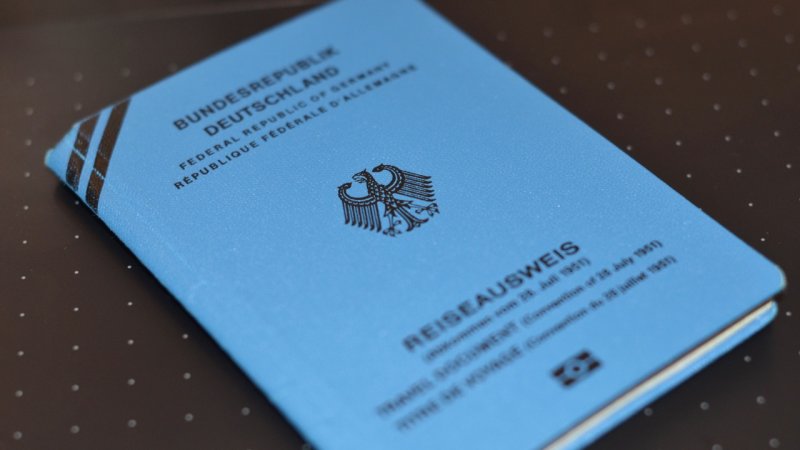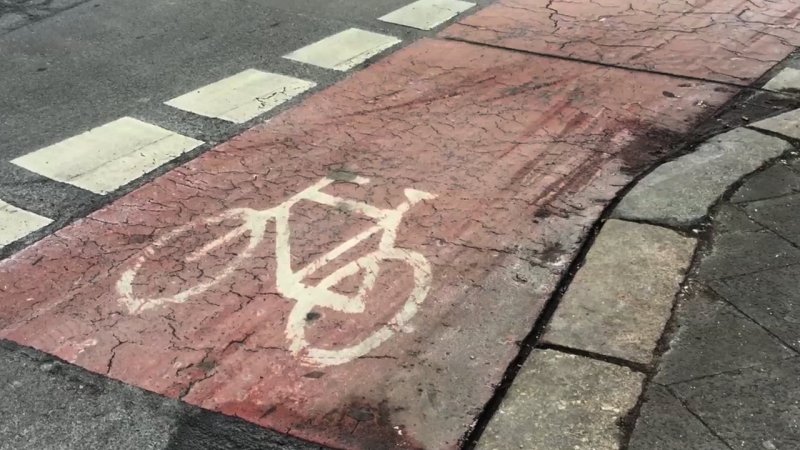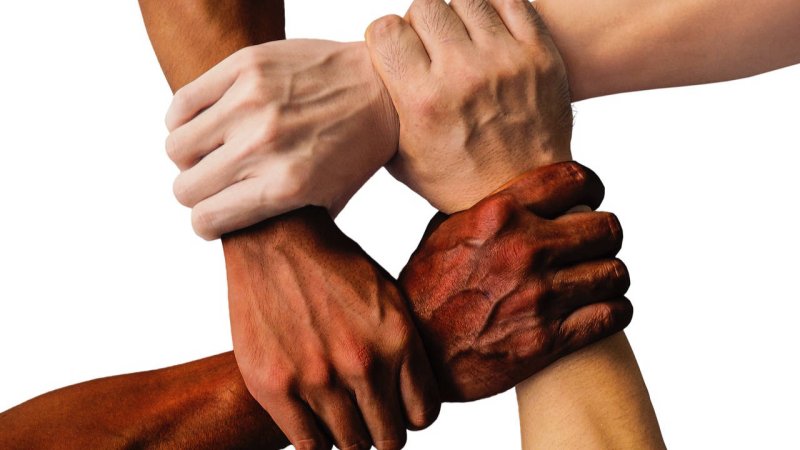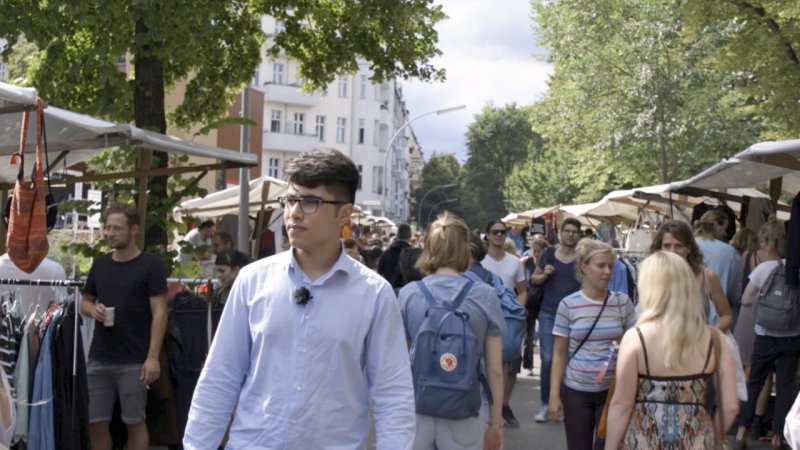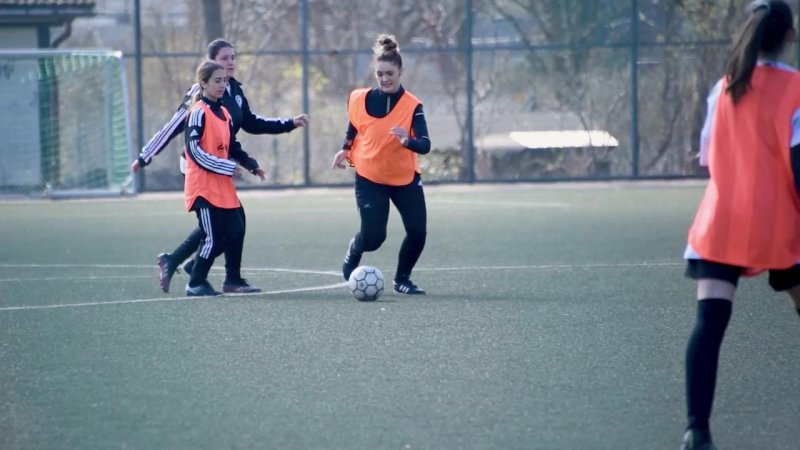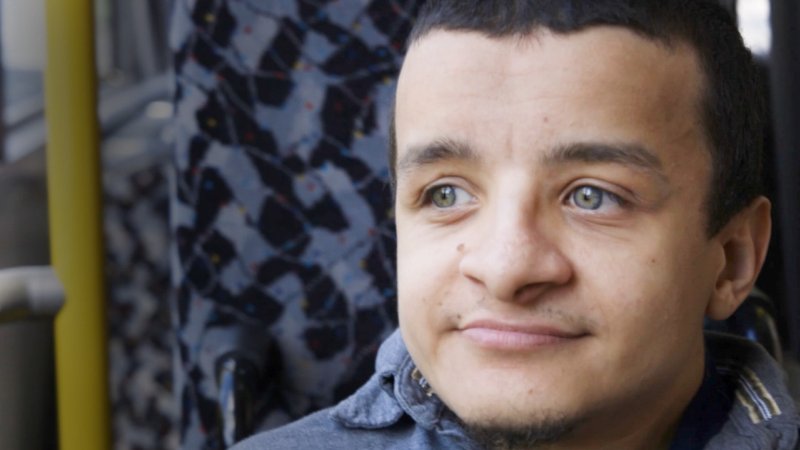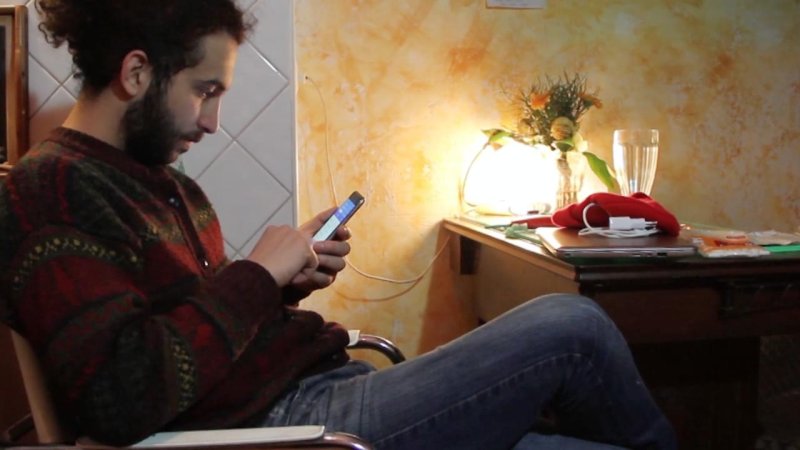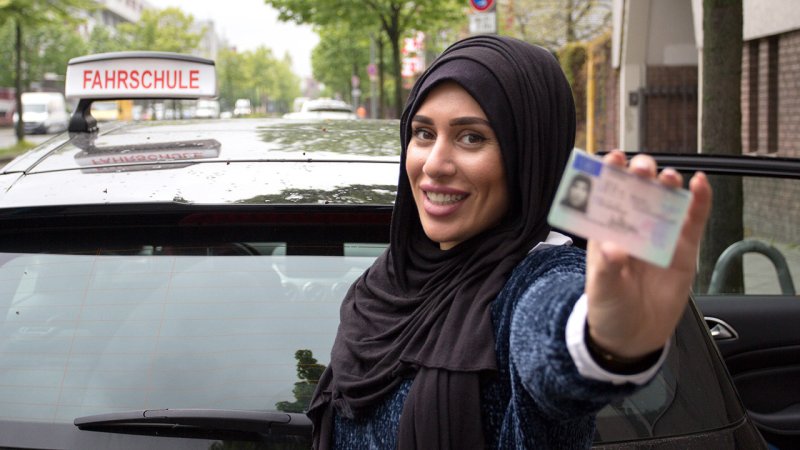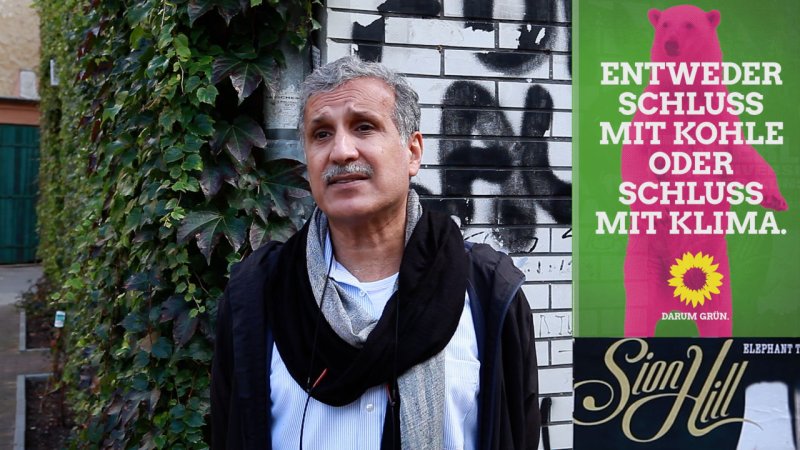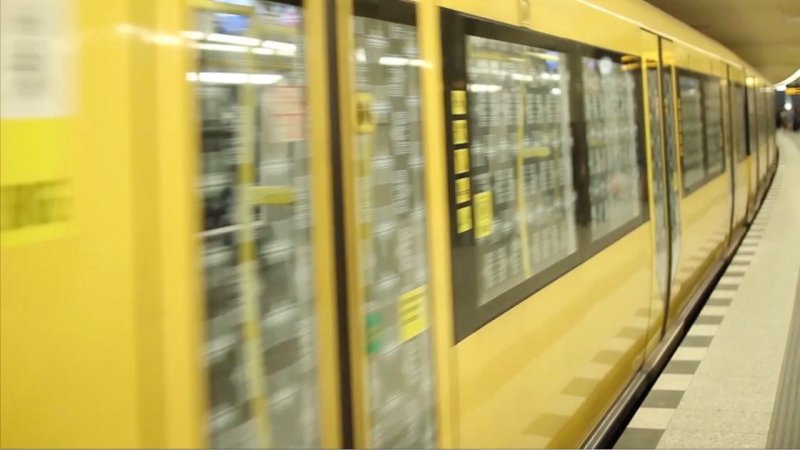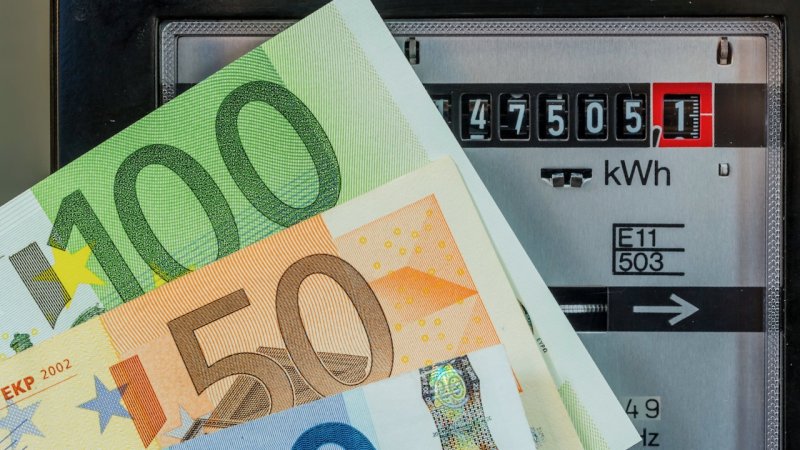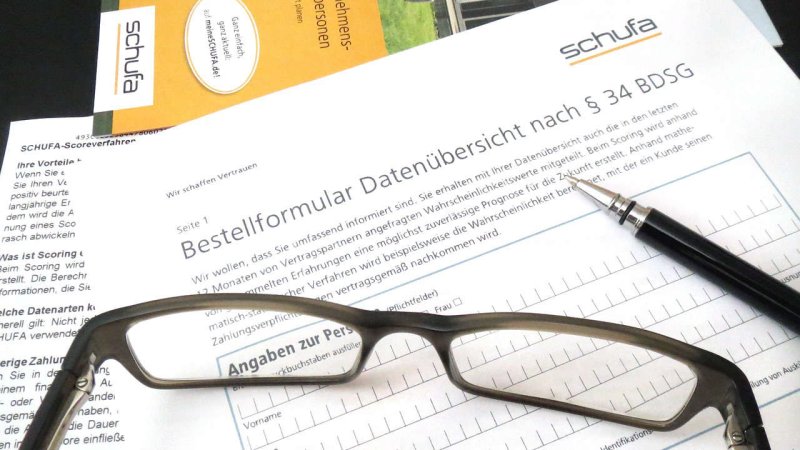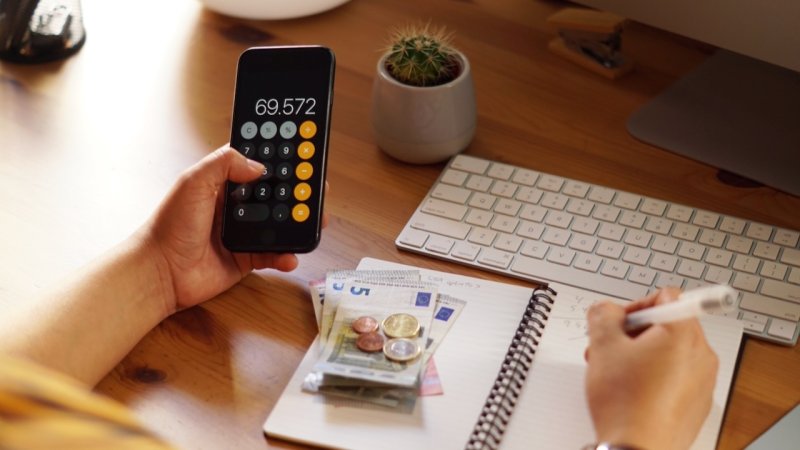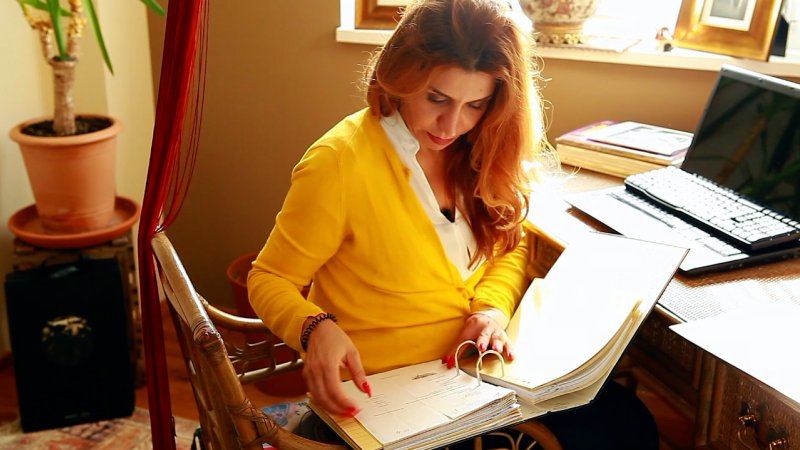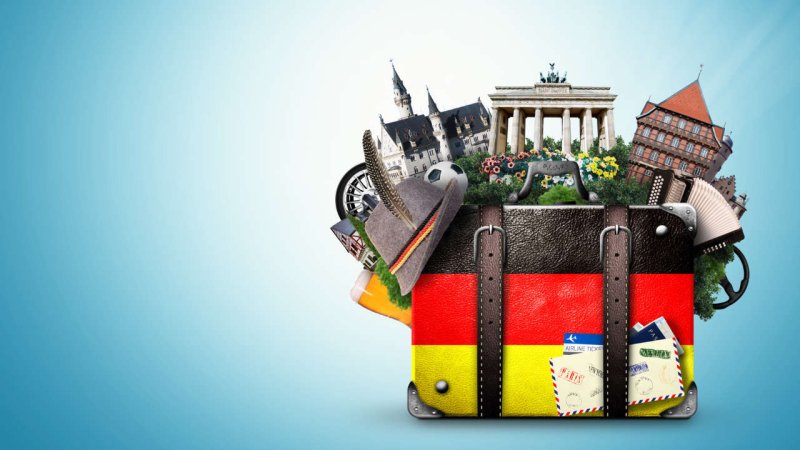Life
Your rights, everyday life and social life
Bank Account
Be it for paying the bills and rent or receiving your wages or financial support from the state – you need a bank account for your everyday life as large transactions occur via banks in Germany. A bank account allows you to keep your money at the bank, send and receive money and withdraw cash. With a bank account, you don't have to use cash to pay bills or rent; you can transfer money via bank.
In this chapter, you will learn how to open a basic account and what options you have when it comes to banking. A basic account is a current account that offers the essential functions of a bank account, for example, withdrawing and depositing cash, making transfers or paying without money.
Blue Passport
If you are recognised as a “refugee” (“Flüchtling”) or “asylum seeker” (“Asylberechtigte*r”) in Germany, you will be issued a so-called “travel document for refugees” ("Reiseausweis für Flüchtlinge"). The travel document is a replacement for the passport from your country of origin or the country you've fled to come to Germany. The “travel document for refugees” is also known as "Convention Pass" ("Konventionspass ") or "Blue Passport" ("Blauer Pass ").
Please note: As an individual entitled to asylum or recognised as a refugee, you cannot apply for a passport from your country of origin. If you do so or visit the embassy of your home country, in principle, you will lose your entitlement to asylum/refugee status and thus your right of residence in Germany.
Cycling in Germany
Cycling is healthy, good for the environment and -of course- lots of fun. In most German streets, there are specific pathways where you can safely ride your bike. Cycling is also a favourite, convenient means of transport in the German countrysides.
Discrimination
Discrimination is prohibited in Germany –nevertheless, many are affected by it. Whether when looking for accommodation, dealing with authorities, at work, schools, doctors' surgeries, during leisure time or with the police. Discrimination can occur in all areas of life. Am I not allowed into the club because I have a disability? Did I not get the job because I wear a headscarf? Are my children treated worse at school because they speak little German? Does the police pick me to check on the long-distance bus because I have a different skin colour? Does the cab driver refuse to take me because I am trans*? Experiences like these lead to feelings of anger, powerlessness and helplessness. Such discrimination also harms social coexistence.
However, you do not need to simply accept discrimination: you have the legal right to defend yourself against it – everyone in Germany does; regardless of their origin or residence status. This right is enshrined in the German Basic Law as one of the human rights. It is also regulated in the General Equal Treatment Act ("Allgemeinen Gleichbehandlungsgesetz" or AGG). You can take legal action against discrimination - and in certain cases, it is worthwhile to do so.
Domestic Violence
Domestic violence refers to the cases in which a family member, acquaintance or other person abuses you in a physical, sexual or emotional manner. Domestic violence usually takes place within homes, but can happen in any other place as well. Many people think of domestic violence as physical violence, i.e. sexual abuse or beatings. But domestic violence has various forms: being insulted, cursed at, threatened, or controlled is also domestic violence. And so is stalking, i.e. being followed and monitored by someone.
Any type of violence is punishable in Germany, i.e. the police are obliged to react when notified about domestic violence by you or a witness.
If you are a victim of domestic violence, remember that you are not alone. Studies show, for example, that one in four women in Germany experience domestic violence. For many victims, it is difficult to share their experiences with the police or at a counselling centre. Many victims are ashamed and hope that the situation will change, that the violent person eventually calms down and stop his abusive behaviour. In most cases, however, the severity and frequency of the violence increase with time, and the gaps between the individual outbreaks of violence become shorter and shorter.
There are numerous contact points for victims of domestic violence in Germany - you must not shy away from reaching out for help.
Emergencies
Emergencies can happen anywhere, anytime. An emergency is any situation in which people, animals or property are in danger. But who should one call in an emergency? Who can help? Here you can find out who to contact in which emergency. Employees of all emergency call centres speak German. In some cases, you can also ask for help in English or other languages, but there is no guarantee. If you don't speak any German yourself, seek help from a German-speaking person who can call the emergency centre for you.
Employees of the emergency call centres must know the following:
- Where is the emergency?
- What happened?
- How many are injured?
- What are the injuries?
- Who is reporting the emergency?
Flea Markets in Germany
Many things such as household goods, branded clothing, jewellery or smaller furniture are quite expensive in many stores. But you can also buy all of these things second-hand on a so-called "flea market" ("Flohmarkt" or "Trödelmarkt") or online shops such as eBay. A flea market is a market where individuals can sell things that they no longer need. Where the word "flea market" comes from is unclear. It may be a direct translation from French. If you have things you no longer need, you can also sell them at a flea market or online to get rid of the clutter and earn some extra money.
German Basic Law
*** May 23, 2024, marks the 75th anniversary of the German Basic Law, that is, the German constitution, which is the basis of our coexistence in a free and democratic constitutional state. The Basic Law was promulgated in 1949. In the aftermath of the atrocious crimes committed during National Socialist tyranny, the creators of the Basic Law decided that human dignity should be paramount in the new law; so that nothing like the Nazi era ever happens again in Germany. You can learn more about the Basic Law in our video series: „Was wäre wenn?“ ***
The Basic Law or "Grundgesetz" is the constitution of the Federal Republic of Germany. It includes the most fundamental rights that determine the way society is organised in Germany. No other law may contradict the Basic Law. For instance, the Asylum Act or the Criminal Law may not contain any ordinances which conflict with the Basic Law. The Basic Law is the most prominent body of law in Germany, hence stands above all others.
The Basic Law consists of 146 sections, i.e. "articles". The first 19 articles of the Basic Law contain the so-called "fundamental rights", i.e. the most significant human rights vis-à-vis the state, designed to protect the individual from despotism, injustice and violence from the state. Some of these fundamental rights, also referred to as "human rights", apply to everyone in Germany, regardless of residence status. The Basic Law also includes a set of other rights, referred to as "civil rights", which only apply to people who have German citizenship.
Established in West Germany in 1949, The Basic Law has been applying to all of Germany since the reunification of 1990. Many of the principles included are consequences of violations of human rights during the National Socialist dictatorship between 1933 and 1945. Fundamental rights have been given a central position in the Basic Law to ensure the atrocities of Nazi times cannot happen again.
The Federal Constitutional Court is in charge of monitoring and assuring compliance with the Basic Law. The government cannot simply amend it.
Initial Orientation Course ("Erstorientierungskurs")
Starting up a new life in a new country is never easy. Not only do you have to learn the language, but you also have to find your way around in everyday life. Refugees, in particular, face many difficulties because they have not been able to prepare themselves for life in the new country. That is why in Germany, the so-called "Initial Orientation Courses" ("Erstorientierungskurse") are organised. In an initial orientation course, you can learn your first words and sentences in German and will receive essential information about life in Germany. For example, you will learn how to call an ambulance in an emergency or can familiarise yourself with customs and traditions in Germany.
Important: Many refugees can start an Integration Course ("Integrationskurs") straight away. You can find out more about these courses in our "Integration courses" chapter. "Erstorientierungskurse" is for refugees who cannot participate directly in Integration courses.
Jobcenter
The Jobcenter can provide you support if you live in Germany and do not have enough money to care for yourself and your family. Under certain conditions, the Jobcenter helps people who have never worked in Germany, those who have been unemployed for more than a year and individuals who earn little despite working. If you are in one of these groups, you can seek financial support for yourself and your family from the Jobcenter. Such support is called „Citizen’s Allowance“ or„Bürgergeld”. It is the successor of the "Arbeitslosengeld II", which was also known as "Hartz IV". The Jobcenter staff will also help you look for a job. Jobcenter can also take over the costs for German courses or further training programmes if it can help you find a job.
Joining A Sports Club
Whether you are into basketball, prefer to dance or like to go swimming - you have various options when it comes to working out. And one of them is to join a sports club. You can practice your favourite sport with other people who enjoy it in a sports club. Or maybe try a new sport. You will find a sports club in almost every town and county in Germany.
Labour rights
Labour law in Germany is very complicated as there are numerous regulations in several bodies of law regarding the subject. However, it is crucial to know your rights and obligations as an employee. You can only demand your rights if you are aware of them.
Legal Aid
Anyone may need to seek their rights at court or have to defend himself/herself against a charge at some point. However, litigation fees are quite high: if you lose, you have to pay your lawyer and court costs. In Germany, Legal aid ("Prozesskostenhilfe") has been established so that people with low income can also demand/defend their rights. "Prozzesskostenhilfe" is a government aid for people with limited income, i.e. the state assumes the costs of the lawyer and the court for certain legal proceedings to make sure no one is prevented from pursuing their rights in court because of substantial expenses.
LGBTQIA+
In Germany, every person is free to live out their sexual orientation and identity, and the law protects lesbian, gay, bisexual, transgender, transsexual, queer, non-binary, pansexual, poly sexual, intersex and asexual individuals, i.e. the LGBTQIA+ community. Nevertheless, members of this community still face hostility and discrimination from some people in the society. Find out more about your rights and how to fight discrimination.
Living with Disability
Many only think of people in wheelchairs when it comes to disabilities. However, disability is multifaceted and there are also invisible disabilities. Learning difficulties, chronic and mental illnesses, for example, can also be considered disabilities. It does not matter if the disability is something with which the individual is born or a condition caused by an accident or illness. On this page, you can learn more about the rights and aid possibilities for people with disabilities in Germany.
Mental Health
Many of us have experienced (or will experience) stressful situations, fear, violence or helplessness at some point in their lives, whether in their country of origin, en route or in Germany. Processing such experiences and feelings could be very challenging. It is entirely normal to feel exhausted, tense, or not like ourselves afterwards. But it is crucial to take care of our mental health and – if necessary – seek help to process our experiences and possible trauma.
Here you can find out where to seek psychosocial support for yourself or others. There are various types of counselling and therapy that could help.
Mobile Phone Contracts
Nowadays, we are all so dependent on our cell phones that living without them seems impossible. Our phones are no longer used only to make calls and send messages - they function as our memory storage, photo archive, and in short, our connection to the world. But when it comes to choosing a service provider, keep your eyes open: the mobile communication market is quite huge in Germany- and there are numerous providers who offer various contracts and cost ranges. On this page, you will learn about available options and find helpful tips on how to avoid high-priced bills or cancel a contract with which you are not happy.
Mother tongue
Speaking German makes your life in Germany much easier and is an important step towards the job market. Learning German, however, doesn’t mean you should unlearn your own language. Especially children adapt very quickly and could forget the language of their parents. In our globalised world, language skills are a big advantage, which is why it is important to promote them. Here you can find some helpful information about multilingual schools and language courses.
Obtaining a Driving Licence in Germany
Having a driving licence can be very useful. For those who live in a village or a small remote city without proper access to public transport, in particular, obtaining a driving licence and often purchasing a car is necessary. In this chapter, you can learn how to get a German driving licence or convert (“Umschreiben”) the driving licence you have obtained from your home country. There will also be some tips on how to avoid losing your driving licence.
Pets
Dogs, cats, budgerigars, fish, mice... - there are countless animals people like to keep as pets. A pet can bring much joy, but also requires care and responsibility. In this chapter, you can learn about the most important regulations and general issues concerning pets.
Police in Germany
The primary task of the police is to protect us from dangers and to fight crimes. That is why the police's motto in Germany is "The police, your friend and helper". The police in Germany has nothing to do with the intelligence agency or politics. When in an emergency, you can reach the police at any time by dialling the free helpline number 110.
What the police can and cannot do is specified in the German law. For example, to search an apartment, police officers need the permission of a judge - unless a person in the apartment is in great danger and needs rescue.
Please note: Do not try to bribe the police. Any attempt to bribe the police is severely punished in Germany.
Political Parties in Germany
A party is an association of people who have the same political goals and want to participate in the political affairs of a country. Each party has a program which clarifies toward what goals it strives.
In order to be admitted to a federal or state election in Germany, each party must prove that it is stable, has many members and a presence in public. Upon meeting these requirements, a party can register with the Federal Election Commissioner ("Bundeswahlleiter"). If a party does not participate in a Federal Parliament or state election for six years, it loses its status as a party.
There are countless parties in Germany. We briefly present the most notable seven below. Each of these parties has an abbreviation (CDU, SPD, ...) and colour (black, red, ...). When discussing or reporting on the parties, oftentimes only the abbreviation or the colour is used. You can find a comprehensive list of political parties in Germany on wikipedia.de.
Public Transportation in Germany
To travel around in Germany, you do not necessarily need a car. You can comfortably move within a city or between cities by buses and trains.
Important: Since May 2023, you can travel throughout Germany with the “Deutschland-Ticket”, also known as the “€49 Ticket”. You can find more information in the “’Deutschland-Ticket’/ €49 Ticket” section below.
Saving Opportunities in Everyday Life
Food, electricity, heating and more – Everything is becoming much more expensive, but you can also use some tips and tricks to save money. In this chapter, you will learn how to save electricity in your everyday life, keep your living space warm while avoiding large bills, and where you can find cheap groceries, clothing and furniture.
Schufa
While renting an apartment, your landlord will most probably ask for a Schufa statement. If you ask Banks for a loan, they will make a Schufa inquiry before they decide your request. Even if you buy a cell phone or lease a car, your contract usually includes a Schufa-related clause.
All this has to do with a company called "Schufa Holding AG". Schufa Holding AG is a credit investigation company which collects information from consumers and companies involved in the lending process. Schufa Holding will review your past payment history, and forecasts your payment behaviour in the future in the form of figures ("Schufa score"). This process is called credit rating.
Schufa Holding AG demands money for the credit report. However, according to German law, you are entitled to receive a free Schufa report once a year. Doing so will help you check what information is stored, where it came from, and to whom it was forwarded. We have created an animation video to show you how to get a free Schufa in a few steps.
Important: Some loan sharks may offer you money without a Schufa inquiry in newspaper ads or on the Internet. Do not fall for it! A majority of these offers are fraudulent.
Sexually Transmitted Diseases
Some diseases can be sexually transmitted. They are commonly called "STDs" (sexually transmitted diseases) or "STIs" (sexually transmitted infections). These diseases are easy to contract, and the consequences of an infection can seriously affect one later in life. The misconception that these diseases are only common among certain groups of people is not true at all– anyone who is sexually active can get infected and, therefore, must watch out.
In this chapter, you will learn more about sexually transmitted diseases such as HIV, AIDS and hepatitis. You will also find helpful information on how and where to have yourself anonymously examined for such infections in Germany. You will also find out where to seek medical and psychological support and how to protect yourself and others.
Social Mentoring in Germany
When you are new in Germany, suddenly, everything might seem foreign and disorientating. Wondering how you should navigate your new life? There are many counselling centres supported by various organisations that offer you help, for instance, to do your paperwork or solve legal issues. That is great support, but nothing can replace personal connections. To have someone who accompanies you over a longer period of time and supports you with everyday questions and appointments is much better. A person with whom you can also talk and spend your free time; someone who might even make you feel like a friend and family. But where do you find such a person? Social mentoring programmes are a great option to try. These programmes are voluntary and provide their service free of charge.
Good to know: Even if you have been in Germany for a long time, you can benefit from the many advantages of mentoring programmes to seek support or pass on your knowledge about life in Germany to those seeking support.
Soutiens liés à la hausse des prix
En raison de la hausse des prix, plusieurs personnes ont des difficultés à payer leur loyer et leurs factures d'électricité et de chauffage. Il en va de même lorsqu'il s'agit d'acheter des produits alimentaires. C'est pourquoi l'État propose différentes aides financières. Dans ce chapitre, nous vous donnons des informations sur les aides que vous pouvez obtenir pour l'électricité, le chauffage, le loyer et pour vos enfants.
Notez que nous ne mentionnons ici que les aides dont vous pouvez bénéficier actuellement. Dès qu’une nouvelle aide sera décidée par l'État, nous l'ajouterons dans ce chapitre.
Supplementary Insurances
In addition to the five compulsory social insurance schemes (medical, long-term care, pension, accident and unemployment insurance), there are other types of insurance one can apply for in Germany. These are optional, even though the word "compulsory" ("Pflicht") may sometimes appear in their titles, e.g. in the "liability insurance" ("Haftpflichtversicherung"). Most of these optional insurances protect you against financial risks. Depending on the life situation you are in, some of them may be useful.
Travelling Abroad for Refugees
Do you wish to pack your bags and go away for a while? Whether you want to travel for work- or family-related reasons or would like to have a holiday abroad, it is not always clear which countries you are permitted to go to as a refugee. Here, we try to clarify which countries you are allowed to travel to with your residence status and travel document as a refugee.
In principle, Foreign citizens in Germany are required to have a valid passport or a substitute passport. The issuing and renewal of foreign citizens' passports is usually the responsibility of the embassy or consulate of their country of origin.
However, certain groups of people are exempt from this regulation, for whom a passport substitute could be issued:
- Persons entitled to asylum and recognised “refugees” according to the Geneva Refugee Convention
- Stateless persons
- People who have subsidiary protection
- People for whom a national ban on deportation has been established and who have no reasonable opportunity to obtain a passport from their home country.
The mentioned groups are often issued a passport replacement document ("Passersatzpapier") in Germany, which exists in three forms:
- The travel document for refugees (Known as "Blauer Pass" or "Blue Passport")
- The travel document for stateless persons
- The travel document for foreigners
In principle, you will be handed the travel document for refugees together with your residence permit at the Immigration Office. Learn more about the travel document for refugees in our chapter "Blue Passport". As a stateless person or someone who is residing in Germany under subsidiary protection or due to a national ban on deportation, you must apply for the travel document for foreigners and stateless persons ("Grey Passport" or "Grauer Pass") at the relevant Immigration Office. You will need to prove to the authorities that it is not likely or feasible for you to obtain a passport from your home country. You can find the relevant Immigration Office at bamf.de.
Travelling within Germany
Germany is vast and has many attractive cities and regions worth visiting. Even if you do not have a car, there are still many alternative ways to travel within Germany to see new places or visit old friends.
Unpaid Bills
Each of us receives bills almost every day - for instance, from a handyman who has repaired something in our flat or a shop where we bought something online. If we forget to pay these bills, further letters with payment reminders and Warnings will follow. Or we may receive letters from a collection company ("Inkassounternehmen") which warns us about possible legal proceedings, the seizure of our wages or a bad Schufa credit entry. Here you can find out more about the workings of these collection companies and the best approach when you receive a letter from them.
Voting in Germany
Free elections are fundamental components of democracy. Through elections, all citizens can regularly participate in the political process and have a say in politics. The parties elected by the majority of voters are allowed to form a government for a definite period. If citizens are dissatisfied with the government's policies, they can vote them out in the next election.
Waste Separation and Recycling in Germany
Waste separation means that different types of waste are collected and recycled separately. In Germany, waste separation starts with the consumer, i.e. households must sort their waste and put it in separate bins and containers.
A large part of the waste generated in Germany is reused and composted, which saves resources and protects the nature. Germany is even set to become the world champion of waste separation. However, the recycling industry and the combustion manufacturers benefit from the waste and also compete in their businesses. That is why there are people who doubt the purpose of the waste separation. To avoid creating waste is, therefore, still the easiest way to prevent the rise of waste piles.
If you fail to dispose of the waste in the right container, the employees or sorting personnel at the recycling facilities have to re-sort the waste. If we all separate waste properly, this extra effort can be avoided, the costs will decrease, and the environment benefits.
Women's Rights
The law enshrines women's rights in many countries, but in most societies, equal rights for women are not still fully realised. In Germany, this is particularly evident in inequality of opportunities in the field of business and politics. Sexualised and domestic violence, and international trafficking of women, are among other critical issues. In Germany, women have already become more visible in the society compared to other countries, yet the women's movement is far from reaching its goal.

